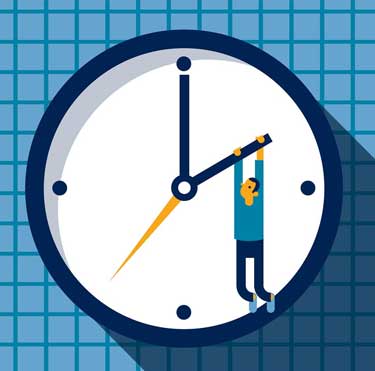Archive: March, 2024
The Manfred Legacy

Worst. Commissioner. Ever.
Commissioner of Baseball Rob Manfred is widely and rightly reviled. He has managed to change the game of baseball fundamentally in a few short years, instituting new rules like the extra-inning "zombie baserunner," the ever-changing pitch clock, participation-trophy-level playoffs, and the metastasization of the cancer known as the designated hitter. A lot of people like some of these rules, which I simply don't understand in a few cases. I think most of them were solutions to problems that didn't exist; the only ones I don't have at least some objection to are the limit on mound visits and the three-batter minimum for pitchers.
Suffice to say, the dude has left his mark. Things are way different than they were before he surfaced from whatever sea of goo his species lives in. But I have to hand it to Craig Calcaterra: he went beyond the rules and pinpointed the real legacy of Commissioner Manfred.
I’ve spent several years mocking all of the “Official ___ of Major League Baseball” sponsorships we’ve seen since Rob Manfred took office. Selling everything that isn’t nailed down, selling lots of things that are nailed down, and inventing new things to sell from whole cloth has really been his singular achievement as commissioner.
Craig was working up to the weirdness within the new rotating sponsor ads on the login page of the MLB phone app, but his broader point is seen everywhere. It's really quite gross. Especially when the jersey ads appear on uniforms now made so cheaply that they look like baggy knockoffs made with iron-on technology in a child-labor sweatshop. Which, if we're being real, they probably are.
Manfred can't leave his job quickly enough. But we're stuck with him for another five years. By which time we might all be watching Blernsball.
No Comments yetOpening Day

Lots going on of late. Most of my free time has been occupied with a project I'll post about later, plus I've been doing the umpire thing, and all kinds of news has been noteworthy, and I've been mildly under the weather since Sunday and binging a rewatch of Enterprise.
But for now, TODAY IS OPENING DAY and I'll be heading down to the ballpark in an hour or so.
In years past I'd have been doing a lot of writing and editing of season preview stuff relating to Your Seattle Mariners, but as we all know, the website that stuff was for and its antecedent publication are both gone the way of the dodo. Thus, I haven't been paying nearly as much attention to the doings of the baseball world in the preseason; I didn't watch a single spring training game or renew my subscription to The Athletic or even pony up to get the everyday newsletters from Joe Pos or Craig Cal. (Craig, I may well take you up on your Opening Day discount offer, but I'm still wavering.)
But the season is here now. Time to buckle down.
The hometown Mariners are not a group that inspires a great deal of confidence, but you know what, they could be really good. They just need to overcome their manager, their lack of depth on the bench, the inconsistency of their ace starting pitcher, the rawness of the rest of the young rotation, a questionable third-base platoon, and an untried relief corps. Otherwise, they look great.
New to the club this year are second baseman Jorge Polanco, who we hope will resemble the Jorge Polanco of 2019 more than the Jorge Polanco of 2020-2023; third baseman Luis Urias, whom I expect nothing from; corner OF/1B Luke Raley, who so far has looked like a Quadruple-A type player, but maybe?; DH Mitch Garver, who actually could be really good; and the welcome return of Mitch Haniger, who we all hope can stay off the injured list.
With that crop of newbies, how can we contain all the excitement?!
Game 1. 7:10pm PDT. I'll be up in section 339 (not my regular seats) keeping score.
No Comments yetWhy do we still do this?!

Yep, it's time once again for the nearly-national indulgence in social engineering we call Daylight Saving Time. And once again, I'm posting about how it's something I wish would just go away.
I am, of course, biased by my upbringing in a state that wisely chooses to ignore this tomfoolery. (Seems I'm also in the minority in opposing the practice.) We never changed our clocks in my childhood, though I do recall once when we were visiting my grandparents in California on the weekend the switch occurred and I was excited to be the one to move the hour hands. It was novelty, I guess. But since we never bothered with it, I didn't understand the point of the thing until much later.
Now that I've been living with the practice for a quarter century, and at a latitude where it actually makes a difference...well, I still think it's dumb. (And misnamed—we're not "saving" anything, just moving our schedules.) And a pretty stark commentary on how stubborn and how easily manipulated humans are.
Let's look at why DST exists at all. Because I'm a bit of a history nerd and this is a good way to procrastinate doing my taxes.
First instituted in Europe 1916, followed by Australia and parts of Canada in 1917 and the United States in 1918, the idea was to reduce civilian energy consumption during World War I. (The US law also established consistent time zones in the country for the first time, to aid in the railway and emerging radio broadcast industries.) President Woodrow Wilson liked the concept of Daylight Time—then defined as beginning on the last Sunday in March and ending on the last Sunday in October—and wanted to keep it after the war was over, but Congress said (paraphrasing) f*ck that sh*t, and repealed it in 1920, pointing out that saving fuel for the war effort was no longer a factor. Wilson vetoed the repeal, but Congress overrode. Hooray for separation of powers!
With no Federal law in effect, states and localities either observed DST or not as they chose. For a couple of decades there was temporal chaos! New York City was on Daylight Time, upstate New York was not! Rhode Island followed it, but not Connecticut! Pandemonium! Except not really, because this was the 1920s and ’30s and it wasn't all that important when people didn't travel much or very quickly.
It wasn't until the next big war that DST made a nationwide comeback, with FDR mandating it year-round from February 1942 through September 1945, again to save on fuel consumption. Once the war was over, so was "war time" and localities again prevailed on the subject.
Now we're into the 1950s and ’60s, though—there's more travel, by air as well as rail; there's more broadcasting, TV as well as radio. The hodgepodge is becoming a real issue. (Apparently there was a 35-mile stretch of highway in Ohio and West Virginia wherein the local time changed seven times from one end to the other.) So, we get the 1966 "Uniform Time Act," a title that is simultaneously spot-on descriptive and contradictory of itself. Neat trick. That legislation says states and localities can't go their own way anymore, everyone within a time zone will be consistent with their local time, and that DST will be in effect from the first Sunday in April until the last Sunday in October. States that don't want to participate are exempt only if they pass a state law declaring the entire state (amended in 1972 so the entire area of a state within one time zone could exempt) stays consistently on Standard time year-round. The rationale is once again a theoretical savings in energy consumption during the spring and summer months. (This law interestingly also placed areas of certain states in new time zones, aligning more with longitude than state boundaries in places like Florida and Texas.)
That's where we are today, save for two more legislative tweaks to extend DST's duration—first in 1986 to add three weeks in April, then in 2007 to add three weeks at the front end and one week at the back end. Now we're on DST from the second Sunday in March to the first Sunday in November, nearly two-thirds of the year.
So that's the how and when of it, but the thing that I really find curious is the why.
The rationale for each and every one of the DST laws is to save on energy consumption by shifting activity to earlier in the day so as to take greater advantage of sunlight. But in our human society, asking large numbers of people to move up their daily activity by an hour for part of the year is an impossible request. We're too set in our ways.
We could just say, OK, starting in April schools are in session from 8:00am until 2:00pm instead of 9:00am until 3:00pm. Broadcasters move their scheduling up one hour. Businesses aren't mandated to have any particular hours anyway, but are encouraged to follow suit and open from 8:00-4:00 instead of 9:00-5:00 or whathaveyou. But what kind of compliance would we get?
Some, sure. But a lot of businesses and private schools and such would say, "nah, things are fine the way it is, I don't want to start an hour earlier." Still others would do it, but later in the year or for a different span of months. We're stubborn creatures. We don't like being told when to do things.
But we're also manipulable. We'll go along with it if we're tricked into doing it. Force us to move our clocks and we'll likewise not change our ways—our stubbornness could still come into play by simply acknowledging that the time shift is fake and we'll simply operate our business hours from 10:00 to 6:00 for the duration, maintaining the same schedule as before, but no; we're used to the number on the clock being the proper measure of time, so we just do it because this way we "don't change our habits." Except we totally do.
There's been a lot of noise in recent years about doing away with the change, but mostly on the side of adopting DST year-round (essentially returning to FDR's "war time"). A number of states have passed legislation stating that they'd go on year-round DST if and when Congress amends the Uniform Time Act to allow it. But we've done that before and it didn't go well.
In 1973, in response to the OPEC oil embargo that caused a national gasoline shortage and contributed to economic recession, Congress passed Senate Bill 2702, which President Nixon signed into law in early 1974. SB2702 extended DST year-round for two years during which studies would be done to determine if it should be extended in perpetuity. But within weeks, popularity of the measure went from 79% to 42%, mostly because of early-morning "night" causing more traffic accidents: school children were being killed on their way to school in the darkness, even in southern latitude states like Florida, and some schools did the sensible thing and reverted to astronomical-time scheduling. One study concluded there was a small savings in energy use, not quite 1%; another found gasoline usage actually went up, defeating the primary purpose. But Congress repealed the measure after not even one year, with a House statement noting that any meager energy gains "must be balanced against a majority of the public’s distaste for the observance of Daylight Saving Time."
Of course, things are a lot different now than even in the ’70s. Power usage happens round the clock now. Energy sources are more varied. Does consumption actually change anymore during DST months? Even in decades past studies were inconclusive, with some saying, yes, electric lighting use dropped a small fraction, but energy used for home heating and cooling went up. Others said the overall benefit was about 0.5% difference in overall usage. But nowadays? With computers running 24/7, LED bulbs replacing inefficient incandescents, more renewable sources entering the electric grids, 24-hour societal activity in most cities? I'm quite dubious.
I'm a night owl. I don't care when the sun comes up in the morning, my natural tendencies are to be up late and sleep late. If we went to permanent DST, fine, at least we won't be switching clocks twice a year anymore. But my preference is permanent Standard Time. When high noon actually happens at, you know, noon, not at 1:00pm. Society can change its schedules if it wants to without the trickery of moving the clock hands.
Hell, baseball teams are already starting most of their games at 6:30 instead of 7:00 (and went from 7:30 to 7:00 20 years ago or so), which annoys me no end. For me, later is better! F you, morning people! Creatures of the night rise up!
Anyway, the immediate bottom line is that I have to start my umpire shift tomorrow at noon, which is really 11:00am, and I'll very likely be working five games on only a few hours of sleep. Hopefully I won't blow too many calls.
1 Comment
Thoughts on the State of the Union

I did not watch/listen to President Biden give his State of the Union speech in real time last night. I had an umpiring shift and was otherwise occupied going out to Cal Anderson Park and moving soccer players off of our field (they were, for once, entirely cooperative; thanks, guys) before officiating a few games. I got home around 12:30am, put a pizza in the oven, and settled in to watch the speech in the wee hours.
It did not disappoint. This was a home-run of a SOTU address, not only touting the various accomplishments of the Biden term thus far, not only setting an agenda for future accomplishments in term two, not only calling out the dire threat and horror show returning the previous guy to office would be, but taking the fight right to people in the room with him—Republican Congressmen and SCOTUS Justices—and once again deftly handling the hecklers and outbursts from Congressional nutjobs.
Referencing FDR's "no ordinary time" remark regarding World War II, the president got things rolling with, “My purpose tonight is to wake up the Congress and alert the American people that this is no ordinary moment, either.” We have a new fight against fascism today, and this time it's not just overseas but domestic. In a skillful poke at Republican hypocrisy he invoked Ronald Reagan and the Berlin Wall, comparing Regan's demand that Soviet leader Mikhail Gorbachev "tear down this wall" to Donald Trump encouraging Vladimir Putin to "do whatever the hell you want." Driving it home, Biden said, “A former president actually said that, bowing down to a Russian leader. I think it’s outrageous. It’s dangerous. And it’s unacceptable.”
Biden successfully (I think) reached potential voters with lines like "Does anybody really think the tax code is fair?" and "Clearly those bragging about overturning Roe v. Wade have no clue about the power of women in America." Direct, forceful statements that simultaneously attacked Republicans, offered positive hope for progress, and appealed to not just the Democratic base but ideological moderates and, frankly, a lot of people that wear MAGA hats. (I mean, that latter group is too far gone to hear it, but the appeal was made nonetheless.)
Oh, and he absolutely torpedoed the "dottering senile old man" caricature of him that right-wing media has been constantly perpetuating. In the moment, Republicans were complaining not that "Sleepy Joe" is addlebrained and weak but that Biden was too loud, too fervent, too mean. Make up your minds, asshats.
I read a lot of takes from around the Interwebs today. Most were effusive, none were really negative except Sean Hannity's, and all he could say was that the president "seemed off," like he was grasping at straws to find any way he could spin the event to fit his old-man-Joe narrative. Some, like Pod Save America's Dan Pfeiffer, focused on the nuts and bolts of the speech's content, but most honed in on Biden's energy, Biden's ability to be quick on his feet and ad-lib, and the astonishing behavior of the Republicans.
In the course of his master class, Biden got considerable help from the other side—whose tantrums and outbursts and lies he handled with the deftness of a practiced Kindergarten teacher. They fumed, they pouted, they squirmed, and, like [House Speaker] Mike Johnson, they sat silently even when Biden was talking about removing lead from water in order to protect our children, lowering prescription drug costs, saving democracy from Russian aggression, and the record growth of small businesses—basically anything good about America or the positive progress this country has made since Biden had been in charge.
Biden said, unlike all the people who don’t, that he would always tell the truth about January 6: “You can’t love your country only when you win.” He asked Congress to uphold their oaths and defend the country against all threats, foreign, and, Biden emphasized, “domestic.” Speaker Johnson pressed his lips together and looked mighty uncomfortable. I don’t think he enjoyed himself tonight.
And Steven Beschloss brought it back to the bottom line:
It was a bracing, optimistic, vigorous expression of what the next eight months (and beyond) can look like. Biden made clear last night, as millions of Americans were listening, that now is the time to choose—not just who we want as president, but what country and what future we want. Few times in our history has that choice been more critical.
Well done, Joe. Keep it up.
No Comments yet
Darrin Bell FTW

The genius behind Candorville cuts right to the heart of the matter.
I'm not sure what the green bottles signify. Any ideas? (UPDATE: Oh, are they spray paint cans, they've just retitled the banner? OK. Sorry, Darrin, it should have been obvious.)
No Comments yet

